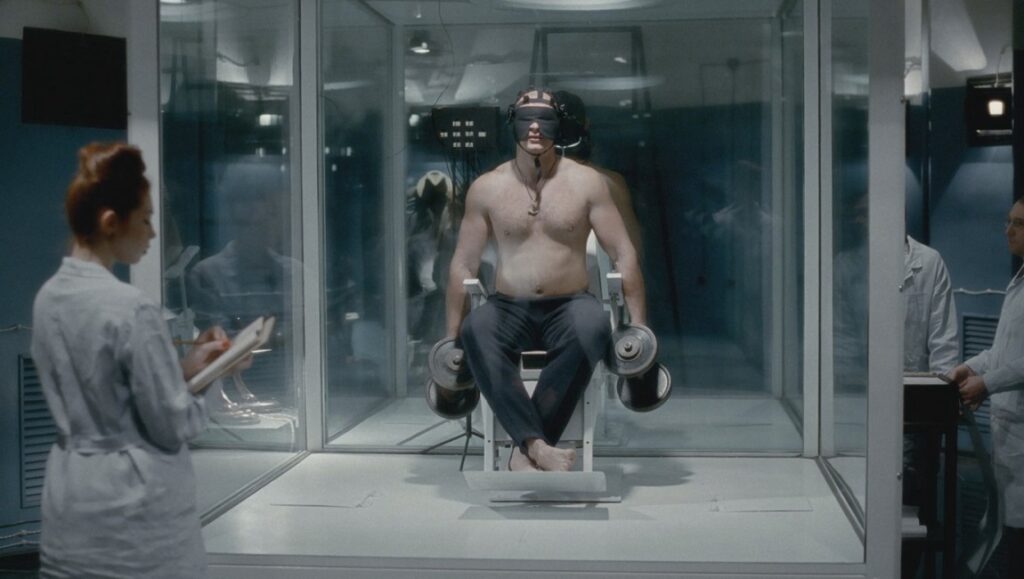To delve into the world of Ilya Khrzhanovsky’s DAU. is to forgo the comfortable spectatorial positions of detachment and objectivity, and submit to its fantastical reconstruction of a totalitarian empire. Already, viewers versed in the megalomaniac dictatorships of auteurs and visionaries might balk; and that’s to say nothing of the numerous allegations of psychological abuse inflicted on the project’s 10,000 participants, which have in their wake blurred the lines between the Stalinist microcosm Khrzhanovsky sought to depict and the Stalinist microcosm he ended up shaping. After three years of filming, and a decade in the editing room, the result — fourteen films and an assortment of miniseries, concerts, and documentaries — has, for better or for worse, proved overwhelming for our present cultural sensibilities. Overwhelming as Salò and In the Realm of the Senses proved for their time, heralding a revolution in the presentation of the artistic and the political as interplaying spheres of influence; but also in its grandiose, Caden Cotard-esque world-building of an eerily historical simulacrum. Ranging from the intimate to the epic, DAU.’s films span the decade from Stalin’s death to the political upheavals under Khrushchev and Brezhnev, centered around a top-secret scientific institute whose members race against the Americans towards technological superiority.
Degeneration (co-directed by Ilya Permyakov), the last entry chronologically, belongs to the latter period: a six-hour survey of the institute’s last days, as the rigid order of communism gives way to both ideological disaffection and the imposition of a new nationalism. Lev Landau, the genius physicist that gave DAU. its name, has been incapacitated by age and an unhappy marriage; his associates slog away on unending eugenic experiments, disillusioned with the administration’s panoptic control over their personal lives. The younger intellectuals flirt with dance, drink, drugs: debauchery in the panopticon’s eye. And then a two-fold transformation occurs — the state’s apparatuses are tightened, exerted to greater repressive ends, while the emergence of a nationalist youth (played here by real-life Neo-Nazis) paves the way for the institute’s descent into madness and moral iniquity. As the push towards a utopian social order is engineered, an equal and opposite pull is exerted, the everyday human desires, prejudices, and ethics colliding head-on with monoliths of inhuman rationalism. The banality of evil is all too well realized in Khrzhanovsky’s inescapable moral parable; one will find it impossible to remain detached from its oppressive Leviathan.
Published as part of Top 25 Films of 2020 — 25-11.


Comments are closed.